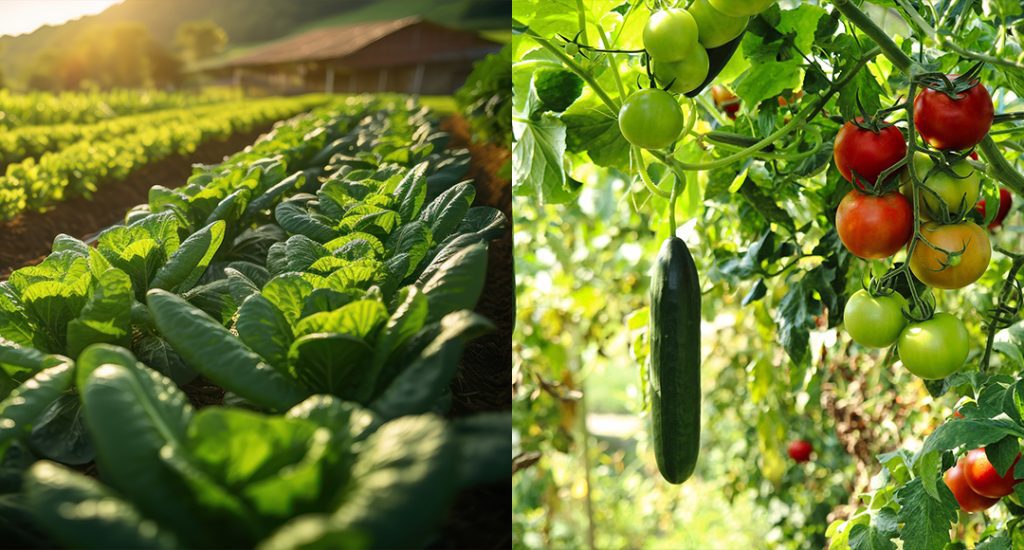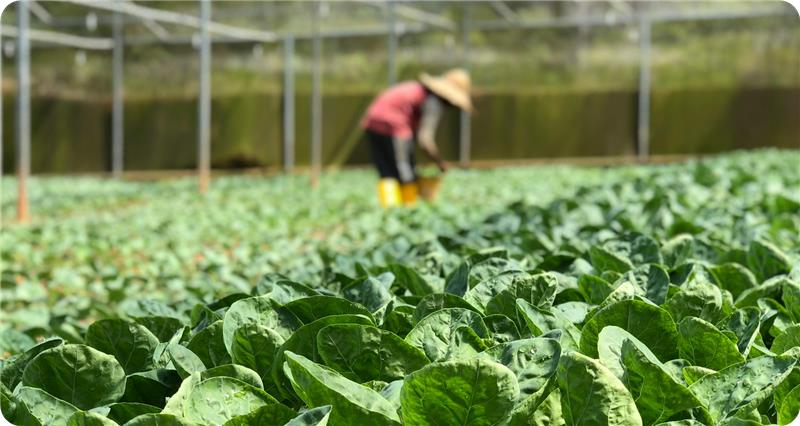What is Organic Farming?
Organic farming is a sustainable agricultural method that uses natural, approved techniques to grow food without relying on synthetic chemicals or genetically modified organisms (GMOs). Unlike conventional farming, organic farming works in harmony with nature, preserving the health of the soil, water, and biodiversity, while promoting better nutrition for both the environment and consumers.

Benefits of Organic Farming
Organic farming offers numerous benefits that positively impact both the environment and the quality of the food we eat. Below are some of the top advantages:
1. Nutrient-Rich and Flavorful Produce
Organic crops, fruits, and vegetables are grown in healthy, nutrient-dense soil, which helps them develop their full flavor and nutritional value. Without the need for synthetic fertilizers, organic produce is typically packed with more vitamins, minerals, and antioxidants, offering a tastier and healthier food option.
2. Free from Harmful Chemicals
Unlike conventional farming, which often uses harmful chemicals like pesticides, herbicides, and synthetic fertilizers, organic farming avoids these substances entirely. This means that the food you eat is free from potentially dangerous chemicals, ensuring better health for you and your family, as well as protecting the environment.
3. Environmentally Friendly Practices
Organic farming focuses on sustainability and reducing environmental harm. By eliminating the use of synthetic chemicals, organic farms create ecosystems that support pollinators, beneficial insects, and wildlife, which helps preserve biodiversity and enhances the overall health of the environment.
4. Soil Conservation and Fertility
Healthy soil is the foundation of organic farming. Practices such as crop rotation, cover cropping, and the use of organic manure help to improve and maintain soil fertility. These methods prevent soil erosion, increase soil health, and ensure that the land remains productive for future generations.
5. Water Conservation
Organic farming practices are also more water-efficient compared to conventional farming. The focus on natural fertilizers and pesticide-free techniques promotes better water retention in the soil, reducing the need for irrigation. Additionally, because organic farming avoids chemical runoff, it helps prevent water contamination, protecting valuable water resources.
6. Supports Climate-Friendly Practices
Organic farming methods contribute to reducing the impacts of climate change. By eliminating the need for energy-intensive synthetic fertilizers and encouraging practices like crop rotation and minimal soil disturbance, organic farming helps reduce carbon emissions and increase soil carbon sequestration, promoting a healthier climate.
7. Ethical Treatment of Animals
Organic farming ensures that animals are treated humanely and ethically. Organic standards require animals to be given ample space to roam, access to natural environments, and care without the use of growth hormones or antibiotics. This approach prioritizes the welfare of animals, ensuring they are raised in a healthy and natural environment.
8. Strengthens Local Communities
Organic farming also supports local economies by fostering relationships between consumers and farmers. By purchasing organic produce directly from local farms or through community-supported agriculture (CSA) programs, consumers help strengthen the local economy, promoting a sustainable and fair food system.
While organic farming offers numerous benefits, it does require thoughtful planning and an understanding of natural systems. By supporting organic farming, consumers can enjoy healthier food, protect the environment, and contribute to a more sustainable and ethical food system.













